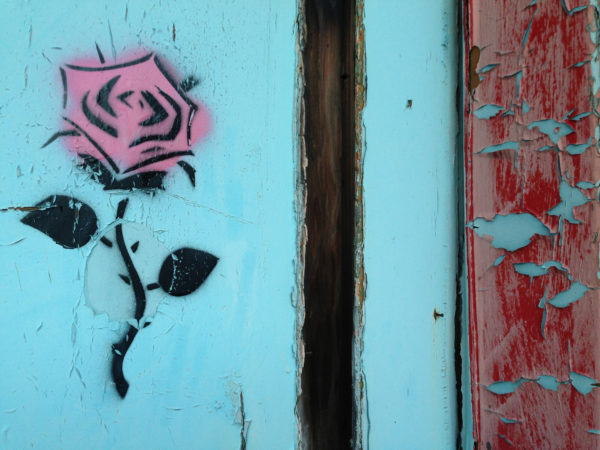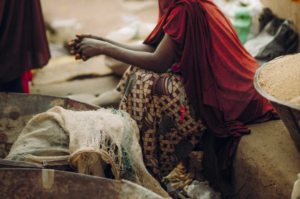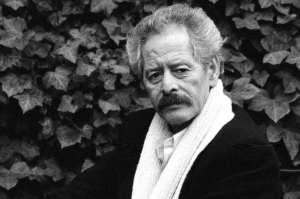THERE was something about Sanele and Kelvin as a couple that made them so intriguing. No, it was not that he was older than her, or that he was a divorcé. Or that they were a multiracial young couple working in the same building (he worked in the advertising department for the umbrella company, which also owned the newspaper that she worked as a reporter for). Maybe it was the fact that they managed to stay, or at least it looked so to the rest of us in the office, so enchanted with each other after so many years of living and working in such close proximity.
Call me voyeuristic, but I watched a lot of people in the office and how they interacted with each other (I could count four couples on our second floor alone); how Siyanda and Nonkululeko would walk in seven minutes after the other so we didn’t think much of it. How Alex would openly flirt with Caroline, undeterred by the fact that he and his live-in girlfriend, Katharine, had just had a baby, and Caroline and her husband, John, were expecting their first baby too and had recently bought a house in Sandhurst. And how Sthembiso appeared so conscientious and devoted to his work and family, yet turned so sheepish when I drove out of the parking lot and past him standing up to (and teasing) Maria, who was leaning on her car. I watched how Kelvin and Sanele tried oh so hard to remain professional, yet there always was a glimpse of intimacy between them — every day he would come back from the mall with bags, with lunch from the deli at the supermarket. He would bring her anything from chicken and pasta salad or chicken and mushroom pie or meatballs. One time she was so flustered when she caught herself too late after blurting out, “Awww thanks, babe,” in front of me.
What made them so enthralling to me was that they were two vastly different people, two very strong characters, who managed to maneuver each others’ strong opinions and avoided killing each other.
Sanele once told me she left a boyfriend in university because he was a free market fundamentalist. I had no clue what that even meant, but I have never laughed so hard, thinking it was so typical of her to undo a young relationship because of her steep expectations; that a boyfriend would always lean towards her ideals, when they had barely been together for six months. But she loved being with him—his age, not to mention experience in bed, meant he knew what he wanted from a relationship, and she was done with boys, she vowed to herself, after her last break up. The thing about older guys, she once told her friend Lebohang, is that I won’t have to ever explain to him where I am or with whom if I chose to go party, because he’s so secure in his skin. Not to mention he could show me things I never knew I could do in bed, a man that can fuck me like a man should, she laughed.
Kelvin, with his unkempt eyebrows and mustache, was a laugh-a-minute man, and I loved him because he was game for a bit of banter. I would tease him about his appearance and he would tease back and berate me for thinking I was Karl Lagerfeld just because I could wear skinny jeans with a parka and hi-top sneakers and a peak cap backwards and somehow make it look like I had just walked off a fashion catalogue. He listened to noise, I always told him, when he got excited that Metallica were touring Johannesburg and Cape Town in December, and he would start talking about Led Zeppelin and Linkin Park and white boy music I thought I had left behind in high school.
She was a bit of an enigma. She could go from reprimanding people on Twitter for slut-shaming female celebrities like Taylor Swift and Rihanna and Amber Rose, to telling you she didn’t care if the national rugby team won or lost the World Cup, because the coach had intentionally left out talented black players, to telling you about this fascinating feature in GQ magazine about how Adidas was moving in on Nike’s turf in America and was planning to usurp the sportswear company as leaders in that market. She also listened to Erykah Badu and Thandiswa Mazwai and Azealia Banks and Kate Bush and read books from Toni Morrison and Alice Walker. He watched Supercars Exposed and Fatal Encounters and Crimes That Shook Britain.
*
IT was Supercars Exposed that she had left him watching the night before, after walking out on him in a huff. When she woke up in the morning she realized he had never come to bed. She got out of bed to go check on him, and when she heard the TV on, she thought he had woken up to watch Rafael Nadal at the Australian Open or something. But it was October, so no.
She found him collapsed on the couch and when she called him, he didn’t respond. She slapped him on the shoulder, and he jerked and mumbled something incoherently. She made them coffee and the beautiful smell snaked its way through the room and he sniffed as he did whenever he was at a filling station and taking in the fumes while they topped up his car. He got up gingerly, and approached her circumspectly.
The atmosphere was still stern.
“After three years of being together, who would have thought that a simple disagreement on whether South African students should be protesting for free education would lead to the first time we slept apart under the same roof, huh?”
He said it for grins, but she didn’t offer any. She knew he was trying to draw her out, trying to ascertain whether she was still upset. And then, as if she was waiting for the kettle, she turned to him.
“After three years together, who would have thought I would have missed the moment you jumped on that high horse you’re speaking from,” she sighed rhetorically.
“Oh, come on!”
“You sat there and told me that these protesting students believe they are entitled to free education.”
“I never said anything about entitlement,” he said.
“Oh, you just implied it. So you didn’t want to say they were spoiled, I’m guessing?”
“Look, all I said was instead of them taking responsibility and paying for their own tuition fees and accommodation like the rest of us did—.”
“Oh! There it is again,” she hit back, reminiscent of the time they fought about whether that Indian woman was correct in scolding a young man begging for money at the petrol station on the corner of Jellicoe Street and Jan Smuts avenue in Rosebank. The woman told the young man that he was harassing her for money for drugs, instead of harassing people for a job, which he clearly could do because he was able-bodied and young. Sanele scoffed at her, calling her privileged, and adding that it was easy to say when she wasn’t the one being offered menial jobs or being taken advantage of. He thought the woman was right, he could go out there and “grab the bull by its horns.”
He should have known better than to try her. Speaking of that, that’s what he had told her when she provoked another inflamed debate about racism and transformation in South African sport. She refused to support her native country against the West Indies cricket team during the World Cup, because it just didn’t feel right to when South Africa had sent a squad with a handful of blacks, who would inevitably warm the bench. He had called her unpatriotic and told her she had embarrassed him in front of his friends, who were over for the braai they were hosting to enjoy the game. He thought she didn’t know how desperate he was to find a job abroad, to wean himself off this country, one he once called “crazy” while talking to his mother over the phone in the bathroom. He was disenchanted with life here, and wanted to move to England where the economy was not in free-fall, where black people were not burning down schools and inconveniencing everybody else, where he could watch a national team picked on merit and not peppered with black players because it was the rule (as if everybody else didn’t want that). He never thought he would ever get ahead in life while corrupt leaders continued to lead the country.
She had never brought up that phone call in the bathroom, or the future of their relationship if he were to land a job elsewhere. She just told her friends how she was growing suspicious of him and how, like a lot of white people, his patriotism seemed conditional, that they always threatened to activate Plan B (joining relatives in New Zealand or Australia or the UK), and too lazy to help fight for the country they never proudly called home.
“Listen to me,” he continued now. “The South African middle class has already been squeezed enough, and any more than this will push us all over the cliff, and it’s quite conceivable that we’ll never recover. Nothing comes for free—they baulked at the proposed 10% hike, and when government returned with a 6% offer they rejected it too.”
“Rightly so.”
“No! It’s a reasonable offer. I cannot for the life of me understand how these students can afford to buy the iPhone 6 and the latest sneakers and weaves but want their school fees taken care of without them working hard for it.”
The elephant in the room had grown so big, the walls were beginning to show crevices.
Kelvin and Roger had sat opposite each other in the office earlier in the week, and as they watched scenes from various universities across the country—students carrying placards reading YOU PROMISED US FREE EDUCATION FOR OUR VOTES, WE HELD OUR END OF THE DEAL and #FEESMUSTFALL and 10%? THERE AREN’T ENOUGH SUGAR DADDIES FOR THAT and ARE THE RICH THE ONLY ACADEMICALLY DESERVING? They sniggered and giggled at THE WOMAN IN THE FRONT WEARING GUCCI SUNGLASSES AND HAS NO REASON TO BE THERE.
The students sang and chanted and danced and booed when the ministers tried to placate them.
Roger said he and his wife were flirting with the idea of moving to London, where his sister and brother-in-law had moved to only a year earlier. “It’s nothing but for the future our kids, man. And if we decide to stay, my sis and her husband have already said they could look after them while they study, and then they can work there too.”
“It’s not a bad idea that. I fear for the future of this country—especially if this is what our students are doing just to get attention.”
“Somebody needs to tell them all that in the real world we aren’t privileged enough to be afforded caps. When the petrol prices goes up, we’ve got to suck it up. When my rent or the next person’s mortgage, or even our insurance premiums go up, our salaries remain stagnant, and we’ve got to make do with that.”
They were sure they were making sense to each other; a healthy discourse, they thought. But not at home, at least not for Kelvin.
“Fuck you, Kelvin. You think, because your circle of buddies doesn’t call you out on your privilege, that you’re contributing to a debate? Let me tell you something. When these students take to the streets to protest, they have exhausted every other possible option.”
She put her coffee mug down.
“They have been patient, waiting for something they were promised two decades or more ago by this government. And because there are 350 black students to eight white kids in a protesting crowd, the narrative becomes about entitlement, because this uncouth term is attached to people of my skin colour, no?”
“Oh, come on. This is not even about race, baby,” he said now, using his hands animatedly as if he was Italian.
“I’m basically saying, these kids must try and get part-time jobs and help pay for their fees—it’s called taking responsibility.”
She hated it when he used “basically” on her for a simple analogy, as if he was trying to get her up to speed. The coffee was now cold on the counter. She had picked the mug and put it back down and picked up and every time she was about to sip, she would have something to say. She must have considered chucking it on his face while it was still hot.
Instead: “Did you have a part-time job during your varsity days?”
“I could have, but it was a stressful time, doing my B.Sc., and trying to make time for my tennis on the weekends.”
She let out a voluminous guffaw. It now sounded ridiculous. He knew it now.
“So you want to sit here and tell black students to forget their stressful studies on the weekends, and go work at some restaurant in Sandton or Rosebank or Melrose and earn R200 a weekend, then commute and buy food from that very same pittance and pay for tuition, text books and fucking residence? Are you kidding me?”
“Okay, I have had enough. I’m going to join Roger and Shaun at the courts.”
Another laugh.
“You have some nerve, too. You’re going to play tennis with your mates at the very same Wits University tennis courts, where students are protesting on the other end of the precinct? I hope they burn your bloody car,” she spat.
“Fuck you.”
When he had driven out, but right after she decided she was going to join the #FeesMustFall protest at the Union Buildings, she allowed herself a brief cry. She was exhausted. But then she got up again, because a resolute country is built on the backs of a resolute people.
**************
The image in the post is by Mary Hutchison via Flickr.
About the Author:
Andile Ndlovu is a Johannesburg-based journalist who can’t afford to quit his full-time paying job and focus on his manuscript, which is also why he has not approached any prospective publishers of this said manuscript – for fear he will miss deadlines. He is also frustrated with its arc, and has momentarily abandoned it. For now, he continues to write short stories and apply for writing fellowships all around the world.











Six local authors shortlisted for the Brittle Paper Literary Awards | Sunday Times Books LIVE August 30, 2017 06:23
[…] Brittle Paper Anniversary Award: - “Love Is Not Apolitical,” by Andile Ndlovu […]